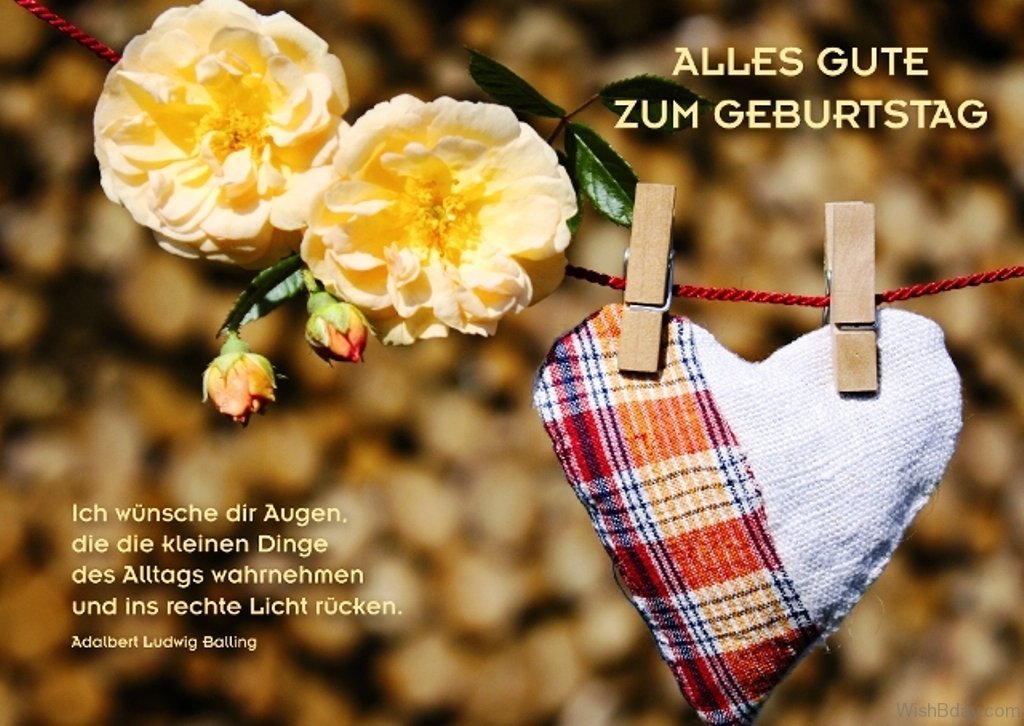"Alles Gute zum Geburtstag": A Deep Dive into the German Birthday Greeting
Verwandte Artikel: "Alles Gute zum Geburtstag": A Deep Dive into the German Birthday Greeting
Einführung
Mit großer Freude werden wir uns mit das faszinierende Thema rund um "Alles Gute zum Geburtstag": A Deep Dive into the German Birthday Greeting vertiefen. Lassen Sie uns interessante Informationen zusammenfügen und den Lesern frische Perspektiven bieten.
Table of Content
"Alles Gute zum Geburtstag": A Deep Dive into the German Birthday Greeting

"Alles Gute zum Geburtstag" is a ubiquitous phrase in German-speaking countries, uttered with warmth and sincerity to mark the special occasion of a birthday. This seemingly simple expression encapsulates a rich cultural tradition and embodies a deep-seated value of celebrating life and acknowledging the significance of individual milestones.
A Cultural Tapestry Woven with Tradition:
The phrase itself translates directly to "All the best for your birthday," but its meaning goes far beyond a literal interpretation. It signifies a heartfelt wish for happiness, good fortune, and a joyous celebration. "Alles Gute" is a versatile expression conveying general well-wishes, while "zum Geburtstag" specifically focuses on the occasion of the birthday.
This greeting is ingrained in German culture, woven into the fabric of daily life. From childhood, individuals learn its significance and its importance in expressing affection and celebrating special moments. The warmth and sincerity behind the words create a bond between the speaker and the recipient, solidifying the importance of community and shared experiences.
Beyond the Words: A Celebration of Life:
"Alles Gute zum Geburtstag" is more than just a greeting; it is a symbol of celebrating life and acknowledging its preciousness. Birthdays mark a passage of time, a reflection on the past, and a hopeful gaze towards the future. This phrase embodies the spirit of optimism and joy that accompanies this occasion.
The act of wishing someone "Alles Gute zum Geburtstag" transcends mere formality. It is a gesture of genuine care and a recognition of the individual’s value. It fosters a sense of connection and shared joy, reminding us of the importance of celebrating life’s milestones.
A Universal Language of Celebration:
While "Alles Gute zum Geburtstag" is deeply rooted in German culture, its spirit transcends language barriers. The core message of wishing someone happiness and well-being on their birthday resonates across cultures and languages. This universal sentiment underscores the shared human experience of celebrating life’s milestones.
The Importance of "Alles Gute zum Geburtstag":
The significance of this phrase lies not only in its cultural relevance but also in its ability to:
- Strengthen social bonds: By expressing heartfelt wishes, the phrase fosters a sense of connection and shared joy, strengthening relationships.
- Promote a culture of celebration: "Alles Gute zum Geburtstag" encourages a celebratory atmosphere, emphasizing the importance of acknowledging individual achievements and milestones.
- Instill a sense of community: The widespread use of this greeting fosters a sense of belonging and shared experience, strengthening the fabric of society.
Beyond the Phrase: A Deeper Look:
The meaning of "Alles Gute zum Geburtstag" extends beyond the literal translation. It encapsulates the German cultural values of:
- Gemeinschaft (Community): The phrase highlights the importance of shared experiences and collective celebration.
- Freude (Joy): It emphasizes the importance of finding happiness and celebrating life’s milestones.
- Wertschätzung (Appreciation): The act of wishing someone well on their birthday demonstrates respect and appreciation for their existence.
FAQs on "Alles Gute zum Geburtstag":
1. What is the appropriate response to "Alles Gute zum Geburtstag"?
The most common response is "Danke schön" (Thank you very much). However, depending on the context and your relationship with the speaker, you can also say "Vielen Dank" (Many thanks) or "Danke" (Thanks).
2. Can I use "Alles Gute zum Geburtstag" for someone who is not celebrating their birthday?
While the phrase is specifically for birthdays, it can be used for other occasions where you wish someone well, such as a new job, a graduation, or a significant achievement. However, it is important to tailor your message to the specific occasion.
3. Is it considered rude to not wish someone "Alles Gute zum Geburtstag"?
It is generally considered polite to wish someone "Alles Gute zum Geburtstag" if you are aware of their birthday. However, if you are not close to the person or if you are in a formal setting, it is acceptable to simply acknowledge their birthday without using the phrase.
4. What are some alternative ways to wish someone a happy birthday in German?
Some alternative greetings include:
- Herzlichen Glückwunsch zum Geburtstag! (Congratulations on your birthday!)
- Einen schönen Geburtstag! (Have a nice birthday!)
- Happy Birthday! (This English phrase is also widely used in German-speaking countries.)
Tips on Using "Alles Gute zum Geburtstag":
- Say it with sincerity: The phrase is most impactful when delivered with genuine warmth and affection.
- Consider the context: Tailor your message to the specific occasion and your relationship with the recipient.
- Combine it with a small gift: A small gesture of appreciation, such as a card or a small gift, can enhance the impact of your birthday wishes.
Conclusion:
"Alles Gute zum Geburtstag" is more than just a phrase; it is a cultural expression of joy, celebration, and appreciation. It embodies the values of community, happiness, and respect for life’s milestones. By understanding the deeper meaning behind this simple greeting, we can gain a deeper appreciation for the richness of German culture and the universal human experience of celebrating life.








Abschluss
Daher hoffen wir, dass dieser Artikel wertvolle Einblicke in "Alles Gute zum Geburtstag": A Deep Dive into the German Birthday Greeting bietet. Wir schätzen Ihre Aufmerksamkeit für unseren Artikel. Bis zum nächsten Artikel!